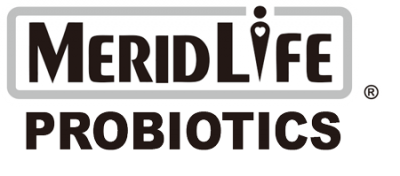What are Probiotics & Prebiotics?Why Do We Need Probiotics?Why Choose MeridLife Probiotics?Benefits of Probiotics?MeridlLife Proprietary BlendGlossaryFAQ
WHAT ARE PROBIOTICS
Intestinal Guard
Probiotics are a class of active microorganisms that are beneficial to the host, and are a general term for active beneficial microorganisms that colonize the human gut and produce precise health effects that improve the balance of the host's micro-ecology and play a beneficial role. The beneficial bacteria or fungi in the human body and animal body are: Lactobacillus plantarum, Lactobacillus acidophilus, Lactobacillus brevis, Bifidobacterium lactis and Bifid's dragon. Bifidobacterium longum and the like.Not all bacteria that are beneficial to the body are called probiotics. It is necessary to conduct rigorous research and various experiments to prove that the strain can withstand the gastric juice, colonize the human intestine, resist bacteria and are safe.
Flora Balance is the Key
The human gastrointestinal tract is an important part of the front line of physical health defense! The immune system keeps in constant communication with the microbes living in our intestines. In fact, about two-thirds of the human immune system is concentrated in the intestines and around the intestines. There is a traffic road from the intestine to the brain - Microbiome-Gut-Brain. This represents the simultaneous stimulation and control of the immune system and hormone balance in the intestines, and even brain neurons, and also has a direct role in mental health.So when the intestinal flora is out of balance, causing bad changes - like: abuse of antibiotics, bad diet, contaminated water or food, disease, etc. The entire flora ecology has been disrupted. Some bacteria may overproduce, others may disappear after the nutrient deficiency, and some will enter a dormant state, just like the seeds wait for the right conditions to germinate again. At this time, probiotics can stimulate certain reactions of the immune system, and these reactions can help reduce inflammation or change the interaction pattern between the immune system and the flora, eradicate unwanted bacteria, and rebuild the balance of the flora!
WHAT are PREBIOTICS
Replenish Bacteria & Raise Bacteria
Maybe you are already eating "Total Probiotics", but still think why the bowel movement is not smooth? Why am I mentally weak?Because when you have an unbalanced diet, you just need to "please the bacteria", and the strength is certainly not enough! It is necessary to supplement the "good food - prebiotics" and at the same time to have sufficient food to feed the intestinal bacteria.
Prebiotics are specialized plant fibers. Currently recognized high quality prebiotics are: Inulin, Fructooligosaccharides (FOS) and Galactooligosaccharides (GOS). When probiotics introduce good bacteria into the intestine, prebiotics can be used as fertilizers for existing good bacteria. It helps to grow bacteria, improve the proportion of the flora, and bring health benefits!
Diet and Probiotics to Effectively and Quickly Improve the Intestinal Environment
Unlike probiotics, prebiotics are not broken down by the body's digestive system. They are not affected by heat or bacteria. Typical and well-known prebiotics - Inulin and FOS, are widely found in natural plants. Inulin is high in some plants used in daily diets: like leeks, onions, lettuce, garlic, chrysanthemums, artichokes, etc.Another group of foods that also contain natural prebiotics - dietary fiber: such as barley, brown bread, fruits and vegetables (banana, apple, fig, carrot, mushroom, spinach, etc.), nuts (almonds, peanuts, walnuts, etc.) and roots.
It sounds like it's easy to get enough prebiotics through eating, right? However, these foods contain only a trace amount of fiber, for example, 1-2 grams per serving. If it can be supplemented with health supplements containing prebiotics, it can ensure that the daily recommended fiber intake is 25 grams.

